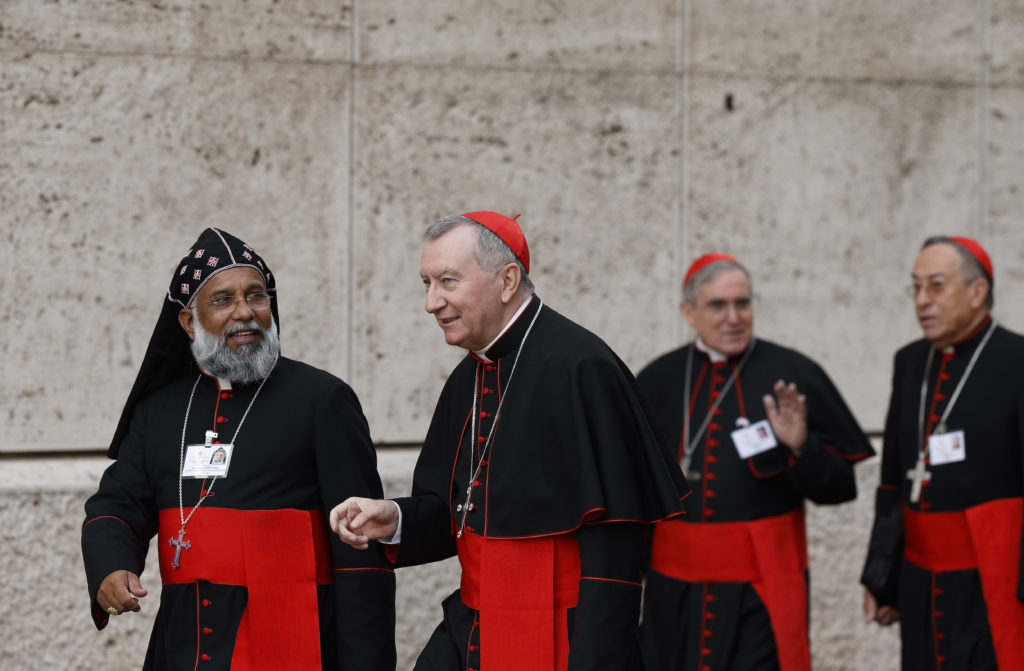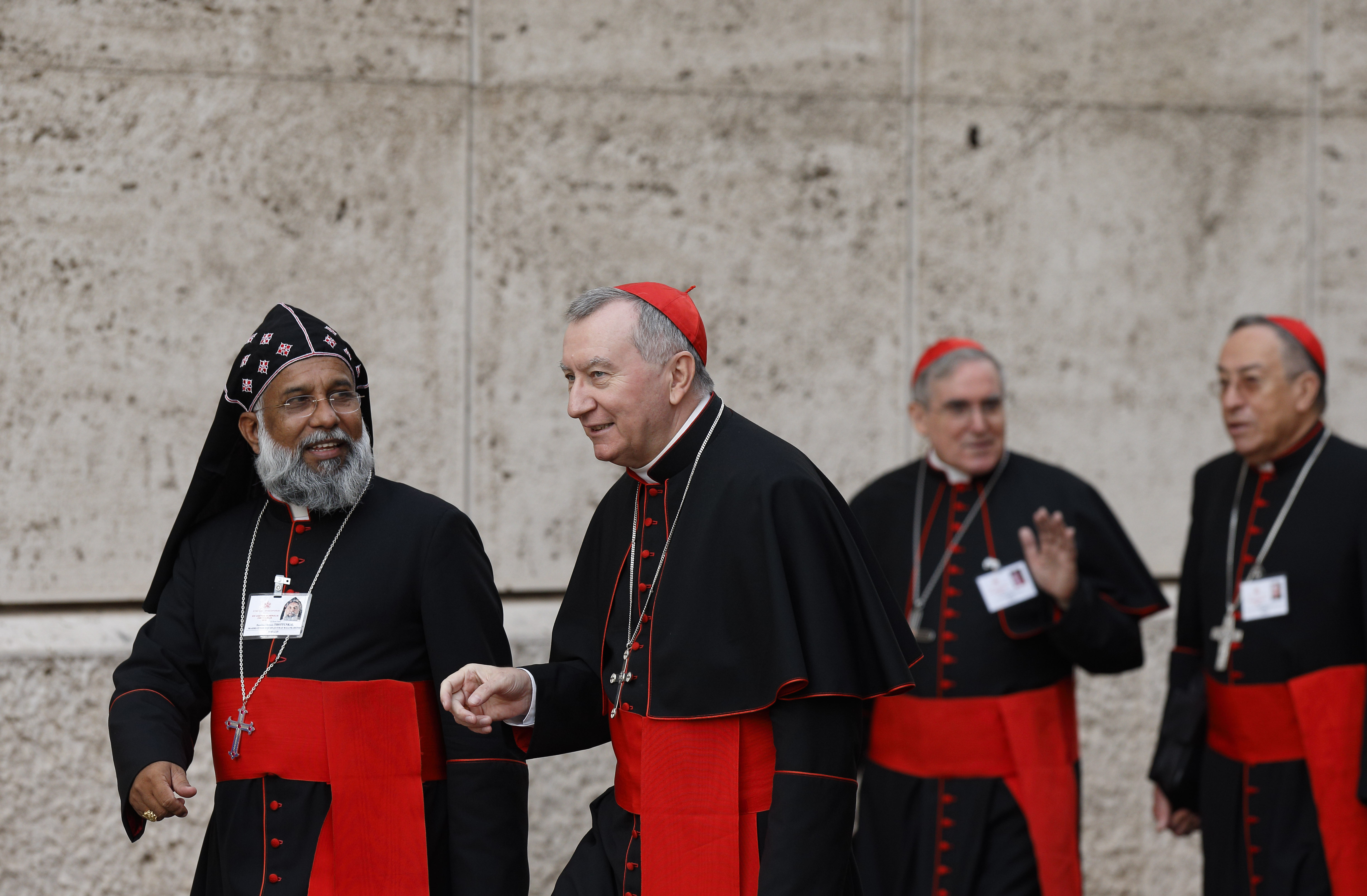
VATICAN CITY (CNS) — The reforms to the annulment process introduced by Pope Francis serve only to avoid delays in cases where marriages are clearly not valid, two synod fathers said.
Cardinal Lluís Martínez Sistach of Barcelona, Spain, and Cardinal Wilfrid F. Napier of Durban, South Africa, told journalists at a Vatican news conference Oct. 20 that the new process has safeguards against any improper shortcuts.
Cardinal Martínez Sistach, who is a canon lawyer, said the brief process starts more quickly, but if it is seen that it will not be simple or straightforward to arrive at the truth, then the case will follow the longer “ordinary” process.
Cardinals Martínez Sistach and Napier both addressed concerns that the reform might pose risks of nullifying marriages too quickly. Cardinal Martínez Sistach, who has served in both the Pontifical Council for Legislative Texts and the Supreme Tribunal of the Apostolic Signatura, said that the emphasis continues to be placed on “formality, respect for the indissolubility of marriage and truth.”
Cardinal Martínez Sistach said the reform further underlines that bishops are not only pastors and teachers, but also judges. However, many bishops may not have the additional time and canon law preparation needed. The cardinal said the reform was a way to emphasize “this ministry of ours, this service of just mercy to people.”
Cardinal Napier said the significant change made by the new rules is that instead of the delay of waiting for documents to go through the channels of an obligatory and automatic appeal, the diocesan bishop with the tribunal can make a decision that is “just as valid as the one that was made by the second instance court” for an annulment case.
“We know that there is going to be a huge challenge of ensuring that we have adequate personnel and well-trained personnel on top of that. And then to make sure that the processes are followed faithfully,” he said. Because if some “shortcut is taken and an appeal is made, that lengthens the process rather than shortens it. I think we are well aware of the importance of following the procedures exactly.”
With a smile, Cardinal Martínez Sistach also suggested the creation of a religious congregation or association made up of canon lawyers and laypeople as a possible solution for dioceses with limited personnel.
The Spanish cardinal stressed that despite the sufferings entailed in a separation, particularly for children, the annulment reforms offer an opportunity for people to rebuild their lives.
“I think that the declaration of nullity is always, logically speaking, a marriage that has failed, that has not found the success that they wanted and in this sense, it makes one suffer,” he said. “But in some way, through the cross and death comes the resurrection. And if a couple obtains the declaration of nullity, they can absolutely rebuild their family.”
— By Junno Arocho Esteves, Catholic News Service. Contributing to this story was Carol Glatz at the Vatican.







